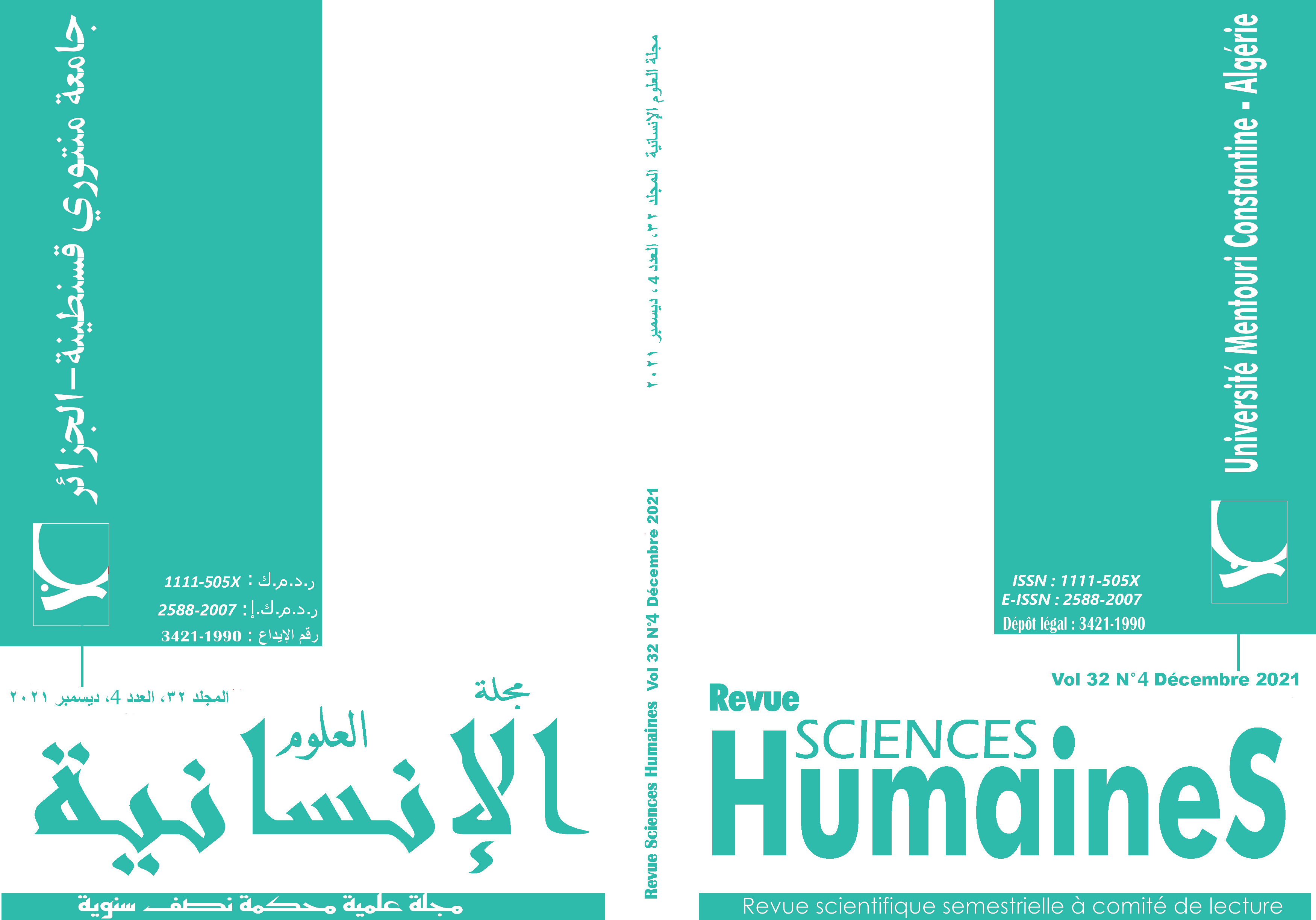Stimulating Competencies through Problematic Situations
Keywords:
Teaching methodology, Problematic learning situations, Problem solving competenciesAbstract
Teachers have often expressed their frustration when confronted to problematic situations which prevent them from achieving their plans and consequently fulfilling their objectives. This feeling is often due to the fact that these teachers have all developed knowledge and acquired skills in safe and comfortable settings during their training. They have rarely been, if ever, introduced to the development of skills in problematic situations. Their frustration can be avoided if they develop problem solving competencies as part of their training. We believe this is a major role of teacher trainers who should take in charge this issue seriously. This paper aims at suggesting a teaching methodology to stimulate problem solving competencies through problematic situations in teacher education.
Downloads
References
. Arends, Richard. I. (2005). Learning to Teach. New York, NY: McGraw Hill.
. Brown, George, & Atkins, Madeleine. (2002). Effective teaching in higher education. London, United Kingdom: Routledge
. Brown, H. Douglas. (2001). Teaching by principles: An interactive approach to language pedagogy (2nd Ed.). White Plains, NY: Addison Wesley Longman.
. Bruce, Bertram C. (2007). Communities of designers: Transforming a situation into a unified whole. In P. Mishra, M.J. Koehler, & Y. Zhao (Eds.), Faculty development by design: Integrating technology in higher education. Greenwich, CT: Information Age.
. Bruner, Jerome. S. (1961). The act of discovery. Harvard Educational Review, 31, 21–32.
. Cantin, Réal, Lacasse, Denise, & Roy, Lucien. (1996). Apprentissage par problèmes, activité de synthèse et épreuve synthèse [Problem-based learning, synthesis activity and synthesis test]. Pédagogie collégiale 10(2), 5–10.
. De Ketele, Jean-Marie. (1996). L’evaluation des acquis scolaires : quoi ? pourquoi ? pour quoi ? [Evaluation of school achievement: What? Why? For what ?] Revue tunisienne des sciences de l’éducation, 23, 17–36
. Dewey, John. (1938). Experience and education. New York, NY: Collier Books.
. Dostál, Jiri. (2015). Theory of problem solving. Procedia - Social and Behavioral Sciences 174, 2798–2805
. Ertmer, Peggy A., & Newby, Timothy J. (1996). The expert learner: Strategic, self-regulated, and reflective. Instructional Science 24(1), 1–24.
. Fadel, Mohamed Rafik (2011). Developing leadership qualities in practice teachers. Revue Sciences Humaines, 36, 71-88
. Fadel, Mohamed Rafik. (2017). Implementing competency based education in initial teacher training in Algeria: The case of pre-service middle school teachers of English at the higher teacher training school (ENS) of Constantine (Unpublished doctoral thesis). Frères Mentouri University, Constantine.
. Gick, Mary L. (1986). Problem-solving strategies. Educational Psychologist, 21(1–2), 99–120. doi: 10.1080/00461520.1986.9653026
. Harmer, Jeremy. (2007). The practice of English language teaching. Harlow, United Kingdom: Pearson Longman.
. Hill, Ann Marie. (1998). Problem solving in real-life contexts: An alternative for design in technology education. International Journal of Technology and Design Education 8 (3), 203–220. doi:10.1023/A:1008854926028
. Jones, Leo. (2007). The student-centered classroom. NewYork, NY: Cambridge University Press
. Jordan, Anne, Carlile, Orisson, & Stack, Annetta. (2008). Approaches to learning: A guide for teachers. Berkshire, United Kingdom: McGraw-Hill Education.
. Kabilan, M. K. (2000). Creative and critical thinking in language classrooms. The Internet TESL Journal (6)6. Retrieved from http://iteslj.org/Techniques/Kabilan- CriticalThinking.html
. Lampert, Magdalene. (2001). Teaching problems and the problems of teaching. New Haven, CT: Yale University Press.
. Murray, T. Scott, Clermont, Yvan, & Binkley, Marilyn (2005). Measuring adult literacy and life skills: New frameworks for assessment. Ottawa, Canada: Statistics Canada.
. O’sullivan, Neil, & Burce, Alan. (2014). Teaching and learning in competency-based education. Paper presented at the Fifth International Conference on e-Learning (e-learning-2014), 22–23 September 2014, Belgrade, Serbia (pp. 71–77). Retrieved from: http://econference.metropolitan.ac.rs/files/pdf/2014/21-neil-o-sullivan-dr-alan-burce-teaching-and-learning-in-competency-based-education.pdf
. OECD (2013), PISA 2012 Assessment and Analytical Framework: Mathematics, Reading, Science, Problem Solving and Financial Literacy, OECD Publishing. http://dx.doi.org/10.1787/9789264190511-en
. Perrenoud, Philippe. (1995). Des savoirs aux compétences : de quoi parle-t-on en parlant de compétences ? [ From knowledge to competencies: what are we talking about when we talk about competencies?] Pédagogie Collégiale (Québec) (9)1, 20–24.
. Pritchard, Alan. (2009). Ways of learning: Learning theories for the classroom. New York, NY: Routledge
. Richards, Jack. C., & Rodgers, Theodore. S. (2001). Approaches and methods in language teaching. Cambridge, United Kingdom: Cambridge University Press.
. Roegiers, Xavier (2003). Des situations pour intégrer les acquis [Situations to integrate achievements]. Brussels, Belgium: De Boeck Université.
. Roegiers, Xavier. (2000). Une pédagogie de l’intégration [Pedagogy of integration]. Brussels, Belgium : De Boeck Université.
. Schmidt, Henk. G. (2012). A brief history of problem-based learning. In G. O’Grady, E. Yew, K.P.L. Goh & H.G. Schmidt (Eds) One-day, one-problem: An approach to problem-based learning. Singapore: Springer pp. 21-40
. Schoenfeld, Alan H. (1985). Mathematical problem solving. Orlando, FL: Academic Press.
. Schön, Donald A. (1989). Professional knowledge and reflective practice. In T. Sergiovanni & J. Moore (eds.), Schooling for Tomorrow: Directing reforms to issues that count. Boston, MA: Allyn and Bacon, pp.188-206.
. Zimmerman, Barry J. (2002). Becoming a self-regulated learner: An overview. Theory into Practice (41)2, 64–70. doi:10.1207/s15430421tip4102_2
Downloads
Published
Issue
Section
License

This work is licensed under a Creative Commons Attribution-NonCommercial-NoDerivatives 4.0 International License.












